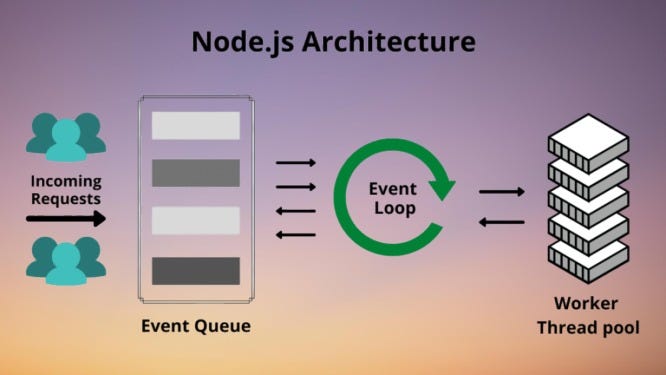How Chainlink Keepers Can Bring DeFi to The Next Level
Chainlink Keepers went live on the Ethereum Mainnet in August 2021. Keepers enables smart contracts to automate key functions and event-driven tasks in a highly reliable, decentralized, and cost-efficient manner. This novel service is a vital step in solving the oracle problem of decentralized finance, and is expected to help DeFi protocols take the next leap forward.
Authors: Sven Henkel, Maximilian Bruckner
Chainlink is the biggest oracle provider
Chainlink was founded in September of 2017 by Sergey Nazarov, Steve Ellis, and Ari Juels, with the purpose of enabling smart contracts to securely retrieve accurate data from off-chain sources of data and information. In this way, Chainlink allows us to take off-chain data and use it on the blockchain. Before these kinds of oracles existed, the functionality of smart contracts was limited due to the inability to use off-chain data. There was simply no way for smart contracts to communicate with external sources. Chainlink solves this problem through its decentralized oracle network. Moreover, Chainlink is regarded as one of the most trustworthy and reliable oracle providers for platforms sector-wide and has become the benchmark for bringing real-world data onto the blockchain. They are also, by far, the oracle provider with the strongest presence throughout the market. For example, they are the exclusive oracle for Synthetix assets, a protocol we covered in a previous article.
Figure 1 illustrates the concept of an oracle in a simplified manner, and shows how off-chain, “real-world” data can be used by smart contracts on the blockchain.

Chainlink Keepers offers automated execution in the smart contract world
As mentioned previously, a big limitation of smart contracts is that they cannot trigger executions at arbitrary times or under certain conditions — usually, smart contracts are only triggered by transactions. There are several ways this problem can be “solved”, but most solutions are reliant on some form of centralized party (introducing a single point of failure). One could use an open market solution to ensure decentralization, however, the implementation here is often overly complex. In addition, these can end up having very high execution costs.
Keepers offer a new solution to these problems. Through its decentralized node network, smart contracts can outsource regular maintenance tasks in a trust minimalized manner, without nodes competing amongst each other [1]. Some examples of event-driven tasks that Keepers can automate are triggering yield harvest functions at optimal times, automatically rebasing token supply for stablecoins to maintain their peg, trigger DeFi trade execution, and release locked assets according to pre-defined timelines. According to Chainlink, “Keepers can support any of a wide variety of triggering goals, including price-dependent liquidation of loans or execution of financial transactions, time-dependent initiation of airdrops or payments in systems with yield harvesting, and so forth.” [2]
DeFi welcomes Keepers with open arms
DeFi Giants Aave, Synthetix, Bancor, Barnbridge, PoolTogether and Alchemix have already adopted Keepers. During the last Chainlink Smart Contract Summit, various CEOs of these top DeFi projects presented Keepers use cases and explained the problems this service solves for them. In the case of Aave, Keepers is used to automate the liquidations required for the protocol to remain solvent. To explain this simply: Aave has registered a Keepers job to trigger the liquidation anytime a user’s loan falls below the given threshold. Keepers now monitor the loan collateralization off-chain and call the liquidation function when there is under-collateralization, hence triggering the execution of Aave’s smart contracts to liquidate the under-collateralized loans.
Let’s look at a different use case. Synthetix uses Keepers to monitor and distribute sUSD exchange fees and distribute SNX rewards to stakers automatically when the fee period has passed. The process is explained in detail in figure 2 below.

The classification of Chainlink according to the ITC

Economic Purpose (EEP): Chainlink is listed as a Settlement and Access Token (EEP22TU02) due to its design as a means of settlement combined with its oracle access functionality.
Industry Type (EIN): The issuer of Chainlink is active in the field of Decentralized Data, Oracles and Infrastructure (EIN06DF04).
Technological Setup (TTS): Chainlink is an Ethereum ERC-20 Standard Token (TTS41BC). The Class “Ethereum ERC-20 Standard Token” captures every Token that is implemented by means of the ERC-20 standard on top of the Ethereum blockchain.
Legal Clam (LLC): Chainlink does not entitle its holder to any legal claim or rights against the issuing organization or a third party, therefore it is listed as a No-Claim Token (LLC31).
Issuer Type (LIT): The dimension “Issuer Type” provides information on the nature of the issuer of the token. Chainlink’s platform is built by Smart Contract Chainlink Ltd SEZC. Its Issuer Type is therefore Private Sector Legal Entity (LIT61PV).
Regulatory Status EU (REU): The dimension “Regulatory Status EU” provides information on the potential classification of a token according to the European Commission’s proposal for a Regulation on Markets in Crypto Assets (MiCA, Regulation Proposal COM/2020/593 final). Chainlink LINK qualifies as an Utility Token (REU52) according to the definition provided in Article 3 (5) of Regulation Proposal COM/2020/593 final.
References
[1] https://docs.chain.link/docs/chainlink-keepers/introduction/
[2] Chainlink 2.0 and the Future of Decentralized Oracle Networks
The International Token Standardization Association (ITSA) e.V.
The International Token Standardization Association (ITSA) e.V. is a not-for-profit association of German law that aims at promoting the development and implementation of comprehensive market standards for the identification, classification, and analysis of DLT- and blockchain-based cryptographic tokens. As an independent industry membership body, ITSA unites over 100 international associated founding members from various interest groups. In order to increase transparency and safety on global token markets, ITSA currently develops and implements the International Token Identification Number (ITIN) as a market standard for the identification of cryptographic tokens, the International Token Classification (ITC) as a standard framework for the classification of cryptographic tokens according to their inherent characteristics. ITSA then adds the identified and classified token to the world’s largest register for tokens in our Tokenbase.
● The International Token Identification Number (ITIN) is a 9-digit alphanumeric technical identifier for both fungible and non-fungible DLT-based tokens. Thanks to its underlying Uniform Token Locator (UTL), ITIN presents a unique and fork-resilient identification of tokens. The ITIN also allows for the connecting and matching of other media and data to the token, such as legal contracts or price data, and increases safety and operational transparency when handling these tokens.
● The International Token Classification (ITC) is a multi-dimensional, expandable framework for the classification of tokens. Current dimensions include technological, economic, legal, and regulatory dimensions with multiple sub-dimensions. By mid-2021, there will be at least two new dimensions added, including a tax dimension. So far, our classification framework has been applied to 99% of the token market according to market capitalization of classified tokens.
● ITSA’s Tokenbase currently holds data on over 4000 tokens. Tokenbase is a holistic database for the analysis of tokens and combines our identification and classification data with market and blockchain data from external providers. Third-party data of several partners is already integrated, and API access is also in development.
Remarks
If you like this article, we would be happy if you forward it to your colleagues or share it on social networks. More information about the International Token Standardization Association can be found on the Internet, on Twitter, or on LinkedIn.
Sven Henkel is a standing member supporting ITSA in its further development. He has a breadth of experience in all aspects of IT which he gained as a Management Consultant and in various IT management positions in the banking industry. Since 2017 he has gained extensive experience in the blockchain ecosystem with a special focus on regulatory aspects, payment solutions (e.g., digital euro and lightning) and IoT. You can contact him via sven.henkel@itsa.global and connect with him on LinkedIn if you would like to further discuss ITSA e.V. or have any open questions.
Maximilian Bruckner is Executive Director at the International Token Standardization Association (ITSA) e.V., and project manager at the Frankfurt School Blockchain Center. He has completed his Bachelor’s degree in Business Administration at the Frankfurt School of Finance and Management, and his written his thesis about the use cases of a token database. You can contact him via maximilian.bruckner@itsa.global and connect on LinkedIn.









